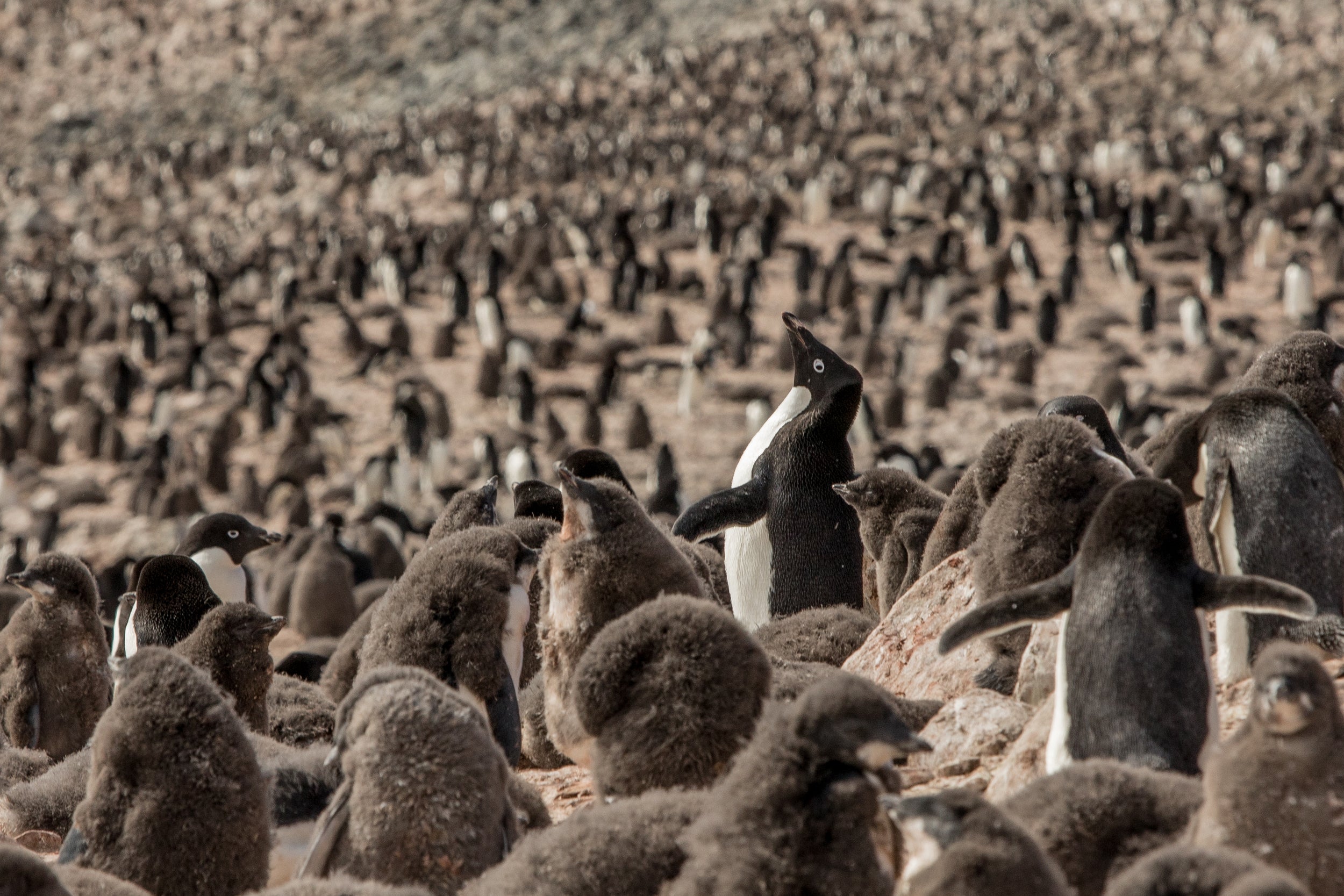Weddell Sea a climate refuge for Adelie penguins, colony surveys show
Researchers onboard the Greenpeace vessel Arctic Sunrise in Antarctica have found colonies at three sites have remained stable in the last decade.

Your support helps us to tell the story
From reproductive rights to climate change to Big Tech, The Independent is on the ground when the story is developing. Whether it's investigating the financials of Elon Musk's pro-Trump PAC or producing our latest documentary, 'The A Word', which shines a light on the American women fighting for reproductive rights, we know how important it is to parse out the facts from the messaging.
At such a critical moment in US history, we need reporters on the ground. Your donation allows us to keep sending journalists to speak to both sides of the story.
The Independent is trusted by Americans across the entire political spectrum. And unlike many other quality news outlets, we choose not to lock Americans out of our reporting and analysis with paywalls. We believe quality journalism should be available to everyone, paid for by those who can afford it.
Your support makes all the difference.Huge colonies of Adelie penguins in Antarctica’s Weddell Sea have remained stable in the last decade, suggesting the area remains a climate refuge for them, experts said.
Researchers from the US’s Stony Brook University who are on an expedition in the Antarctic on Greenpeace vessel Arctic Sunrise, surveyed breeding colonies at three sites in the remote Weddell Sea.
Colonies on Penguin Point, Devil Island and Vortex Island, in the north-east of the Antarctic Peninsula all have roughly similar population sizes to when they were last surveyed between 2008 and 2010, the scientists said.
This suggests the Weddell Sea – the site of a vast proposed marine protected area first proposed nearly a decade ago but not delivered – may be an important refuge for wildlife from the worst impacts of the climate crisis, they said.
Greenpeace has called on governments which make up the Commission for the Conservation of Antarctic Marine Living Resources (CCAMLR) to “act before it’s too late” to protect the area for the sake of its wildlife.
Dr Heather Lynch, professor of ecology and evolution at Stony Brook University, one of the expedition’s leads, said: “The Weddell Sea is hardly immune from climate change, but it appears that Adelie penguins breeding in this area remain buffered from the worst of the threats posed to those populations declining so rapidly on the warming western side of the Antarctic Peninsula.
“Our understanding of the biology in this inhospitable landscape continues to grow every year, but everything we learn points towards its value for conservation.”
Greenpeace campaigner and expedition lead Louisa Casson said: “It is amazing to see places of the Antarctic are still sheltered from the worst impacts of the climate crisis.
“Governments need to protect this area now.
“Last year, they failed yet again to give the Weddell Sea the protection it needs – a decade on from promising to protect the Antarctic Ocean. We urge them to act before it’s too late.”
The scientists counted 21,500 Adelie chicks on Penguin Point, where in 2009 there were 16,000 nests.
Scientists said that the penguins lay on average two eggs, but a smaller proportion of these hatch and survive, which means the latest count of chicks suggests a stable population.
On Devil Island a survey in 2010 found 9,177 nests and the latest count shows 11,978 chicks, while on Vortex Island, the last count was in 2008, revealing 4,319 nests and this year the count totalled 6,937 chicks.
Both these counts also suggest a stable population, the researchers said.
Last week the Stony Brook scientists discovered a new gentoo breeding colony on nearby Andersson Island.
That suggests the ecosystem at the edge of the Weddell Sea is changing, but it does not yet seem to have negatively affected the Adelie penguins which have been there for centuries, Greenpeace said.